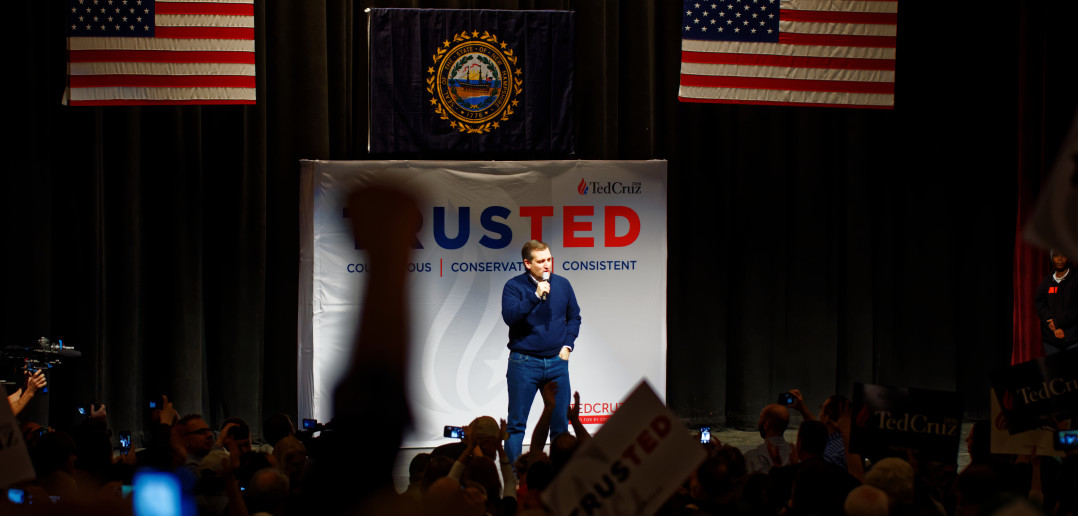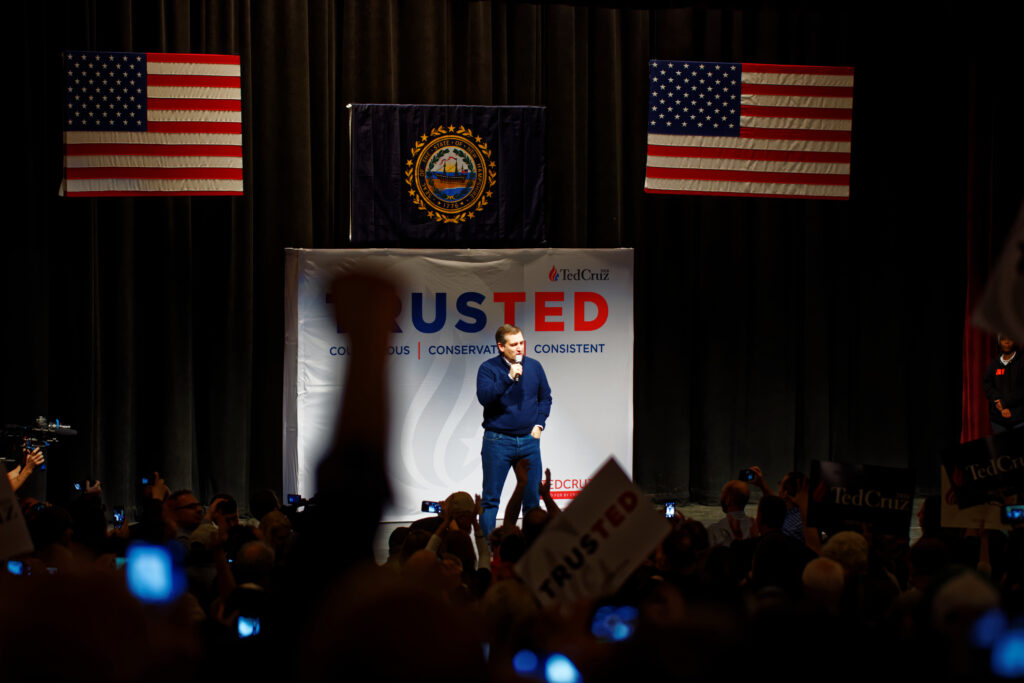
There’s something fishy about American politics, and it boils down to this—our political divisions on every issue don’t really fit neatly onto a left-right axis. Something else appears to be at work, and according to various scholars, that something is culture, specifically the regionally based cultural influence on different strains of American thought. Fortunately, this is a topic that has been intensively studied by various scholars.
If you haven’t already read Walter Russell Mead’s masterpiece Special Providence, you should do yourself a favor and read it, along with “The bard of Bard’s” other commentaries on the various traditions of American foreign policy.
Mead’s essential argument is this: rather than there being a mere split between “hawks” and “doves” or “realists” and “idealists”, the chief divisions in American foreign policy-making – and indeed, domestic policy-making too – have been the disagreements and dialogues between various American regional cultures and the intellectual traditions that they spawn. And, as America has always had something of a two-party system, with one party more localist and conservative and the other more nationalist and progressive, so there have been “left” and “right” iterations of each subculture’s foreign policy tradition. These four traditions are outlined below.
The Wilsonians
There are the “Wilsonians”, intellectuals emanating from the Yankee-Puritan culture of the Eastern cities, the Northern Tier, and the Yankee beachheads on the West Coast, such as San Francisco and Seattle.
From this cultural grouping spawns the ideology of “A City On a Hill”: of America as a project in democratic ideals of ordered liberty and thus a community rather than an assortment of individuals. Wilsonians on either side of the liberal-conservative spectrum see their domestic purpose as building a better, more just American nation. On the strategic end, they see their purpose as building a better, more just liberal world order with America at the head.
On the left are the neoliberal builders of world order, from Truman and Kennedy to Bill and Hillary Clinton. On the right are the neoconservatives and their ancestors, including Scoop Jackson and Ronald Reagan, and, today, George W. Bush, Jeb Bush and Marco Rubio.
The Hamiltonians
Then there are the “Hamiltonians”, policy intellectuals rising from the commercial business culture of the Eastern cities bequeathed to America by the Dutch founders of New York and the Hamiltonians’ namesake, Treasury Secretary Alexander Hamilton.
Hamiltonians believe that “the business of America is business,” and see economic development and progress as the genius of America. On both sides of the aisle they tend to be “realists” concerned with developing and expanding American power and balancing foreign powers against each other. But they are more liberal than European realists, seeing commerce and trade as a somewhat pacifying force capable of building international order.
Today most Left Hamiltonians fall in line with the Wilsonian camp, while Right Hamiltonians have included everyone from Dwight Eisenhower and Richard Nixon to Colin Powell and Robert Gates.
The Jeffersonians
Arising from Quaker/German-born Middle America, the Midwest and West that Colin Woodard calls “The Midlands”, is the “Jeffersonian” tradition.
Jeffersonian thinkers praise the smallness of local community, disdain large accumulations of power and, similarly to the Puritans, view America as an experiment. However, instead of America as an experiment in ordered liberty, they see it as one in personal liberty. These thinkers and the populations that support Jeffersonians – the rural Midlanders of the Midwest and West on the Right, and the bourgeoisie urbanite middle class of the cities and suburbs on the Left – are more or less foreign policy isolationists who see more promise in an inward-focused America than one entangled in messy situations abroad. They think such involvement distracts from the project of protecting individual liberty.
On the Right, the primary purveyors of the Jeffersonian tradition are Ron and Rand Paul; on the Left, Bernie Sanders is perhaps the best exemplar.
The Jacksonians
Finally, there are the “Jacksonians”—populist-nationalist descendants of the Scots-Irish, the population that has dominated the rural South since the founding of the US.
Jacksonians are highly individualist and have little respect for established institutions or outsiders, although as Mead notes, they are still highly traditionalist and oppose the excesses of modernity. But most importantly, they are fierce. It is this band more than any of the others that has influenced the military culture of the United States Armed Forces in the post-Civil War United States. Their foreign policy intellectuals are somewhat isolationist, disdain international institutions and favor the Powell Doctrine – strike hard and leave – in war fighting. Ever since the party split of the 1960s-1970s, when Republicans veered to the Right under Barry Goldwater and Democrats slid left under George McGovern, there have been no “Left Jacksonians”; they simply don’t fit into a liberal Democratic Party. They almost always vote Republican, and in the present day have been flocking to candidates like Donald Trump, Ben Carson and Ted Cruz.
Mixed Traditions
It’s important to note that there are indeed mixes of various traditions out there. For example, Hillary Clinton is a left Wilsonian-Hamiltonian who favors both a liberal world order and increased international commerce (her campaign’s rejection of the Trans-Pacific Partnership notwithstanding) as well as a hawkish realism in military policy. Ronald Reagan, who secured the Jacksonians in his political coalition, acted as a Jacksonian nationalist in some ways – for example, avoiding large wars like Vietnam and Iraq while speaking the language of national strength – while fundamentally leading as a Wilsonian statesman fighting for international liberty. Most of the Right today seems to be split between Wilsonian, Jacksonian and Jeffersonian camps, while the Hamiltonians are relegated to academia and government service, particularly in the defense and intelligence communities. The Left, meanwhile, contains plenty of Jeffersonians and Wilsonians. And of course, there are mixes across the aisle.
The Traditions in 2016
So what choice of strategic cultures will American voters have in 2016? The answer depends on who, or what kind of person, gets the parties’ nominations this coming year.
Hillary Clinton is likely to get the Democratic nomination. She is, again, a Left Hamiltonian-Wilsonian, more hawkish than President Obama has been and almost certainly more likely to commit American troops to various theaters of the world in the interests of shoring up what remains of America’s international order. Her rhetoric would probably feature more endorsements of human rights and women’s issues than her Republican hawk rivals’ would. Would Clinton work towards a new World Trade Organization, or even a new Bretton Woods or Marshall Plan? That would be interesting. It will also be interesting to see whether Bernie Sanders’s isolationist Left Jeffersonian thought will draw Clinton further left, though that remains unlikely.
Meanwhile, whoever gets the Republican nomination – and in January 2016, at the time of writing, it increasingly appears it will be either Cruz, Trump or a “Trumpified” Rubio – will almost certainly be a Jacksonian nationalist, rejecting George W. Bush’s neo-conservatism while pledging to strengthen American military power and use it to increase international respect for America. At the same time, a Jacksonian would seek to avoid foreign entanglements, though if they wound up in one, they would be unafraid to pour the “Arsenal of Democracy” forth onto the opponent.
One thing’s for sure: this would be an inward-focused hawkishness, not one bent on crafting a liberal world order and certainly not one focused on expanding trade and commerce. The nomination of an establishment Republican – Bush, Christie and Kasich – would probably result in resurgent Republican neo-conservatism and international order building, but that scenario appears less and less likely.
Thus, we face a reverse situation to that of the 2008 election. In 2016, the Democrat may well be the one advocating re-building international order, while the Republican will be the one intent on turning inward. The outward and inward focuses will have different tones, for sure, with the Democrat featuring a more liberal order-building than the Republicans’, and the Republican maintaining a fierce nationalism alongside near-isolationism. But the paradox will exist nonetheless. It will look something like Stephen Peter Rosen’s dichotomy of American war-fighting cultures.
America has had a basic Hamiltonian-Wilsonian foreign policy consensus for at least two and a half decades now, and something resembling that for another four decades back. The election of Hillary Clinton would perpetuate that consensus; the election of Trump, Cruz or a Trumpified Rubio would likely herald a dramatic break with the past of 1920s proportions, when President Harding’s “return to normalcy” saw America leave Europe to the squabbles of the French and Germans.
So, what will the voters demand?
The views expressed by the author do not necessarily reflect those of the Glimpse from the Globe staff, editors or governors.







